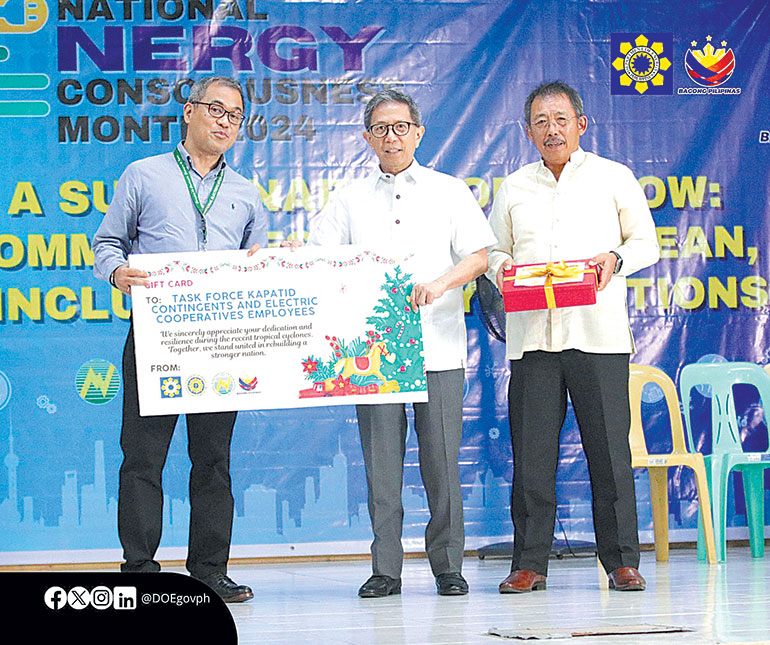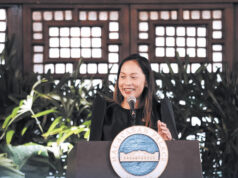An ongoing quest for PHL’s energy security and sustainability

Energy is essential in running the economy as it powers homes, offices, institutions, and establishments. However, in a world being challenged by climate change as well as depletion of traditional sources for energy, it is now more crucial than ever to achieve secure and more sustainable energy for the country.
Energy security sits high on the Philippines’ economic agenda as it aims to establish the country as a renewable energy leader, pushing forward with various initiatives and developments that support a sustainable energy transition. A fundamental element of this movement is the Philippine Energy Plan 2030-2050, which charts the course of development for the energy sector, prioritizing energy security, renewable energy development, and promoting sustainability, among others. This plan is aligned with the United Nations’ Sustainable Development Goal (SDG) 7, which aims universal access to affordable, reliable, and renewable energy.
To fast-track development of energy resources, one top priority is to increase the renewable energy share in the power mix from 22% to 35% by 2040. With this, the government plans to maintain energy efficiency at a minimum of 10% through 2050 and achieve a 50% market share for electric vehicles, among others, according to the Department of Energy (DoE).
In the ongoing pursuit of these goals, the Philippines is already making significant advancements in the energy sector. For instance, its second rank in the BloombergNEF Climatescope 2024 report has positioned the country as one of the most attractive emerging markets for renewable energy investments, showing a clear path for the country’s sustainable power growth and transformation.
“This achievement underscores the effectiveness of the Philippines’ comprehensive renewable energy policies, which include auctions, net metering schemes, tax incentives, and an aggressive clean energy target of 35% renewable energy in the power mix by 2030. As the only emerging market in the Asia-Pacific region with all these mechanisms in place, we are paving the way for a more sustainable energy future, not only for our nation but as a model for the region,” the department said in a statement.

National Energy Consciousness Month
This December, the DoE spearheads the observance of the National Energy Consciousness Month (NECM), which for this year celebrates the acceleration and expansion of clean and sustainable energy in the country, with the theme: “Energizing a Sustainable Tomorrow: Empowered Communities through Clean, Resilient, and Inclusive Energy Solutions.”
This year’s campaign will focus on raising more public awareness and information, encouraging efficient use of energy and conservation. The department will lead the charge through several initiatives, including promoting energy literacy and awareness among Filipinos, which will help them move towards a more sustainable energy future.
Some of its initiatives include the annual Energy Investment Forum, which happened last Dec. 5. With the theme: “Energy Transition: A Symphony of Change,” the forum discussion revolved around energy innovations, investments, and sustainable practices seen in the sector and how these play a role in transforming the supply chain, pushing the country towards a cleaner energy future.
In addition, the forum served as a platform that discusses efforts and initiatives within the sector, focusing on energy efficiency and transition in the country. It included discussions such as energy transition strategies, energy grids and transmission plans, initiatives from financial institutions aimed at sustainable energy, global perspectives on sustainable energy investments, and how to foster a more investment-friendly environment for energy transition in the country.
Following the forum was the Energy Policy Dialogue (EPD) 2024 held last Dec. 6. The event emphasized the department’s commitment to enhancing energy security, increasing energy access, and advancing the clean energy transition in the country. The discussions were centered on the importance of renewable energy technologies, access to financing, and a strong infrastructure to support the energy transition. The dialogue was built to strengthen the partnership of the Philippines and the United States with two goals in mind — mitigating climate change and driving economic growth.
Last Dec. 10-11, the department hosted the 19th Energy Safety, Health and Environment Conference. The two-day conference was about fostering discussions and promoting safety, health, and environmental practices within the sector. It brought industry experts and significant players to share their insights in improving safety and environmental performance in the energy sector.
Another part of the National Energy Consciousness Month observation this year was the Sustainable Energy Awards, held last Dec. 12. This event recognized the remarkable achievements happening in the energy sector, shining a light on innovative and sustainable projects, practices, and technologies that are currently transforming the energy landscape in the Philippines. The awarding ceremony also sought to inspire stronger commitment to sustainability and to keep such momentum within the sector.
Awardees for this event included those in the public sector, showcasing cities, provinces, and municipalities that have created an environment for the growth and development of renewable energy and sustainability. In the private sector, meanwhile, awards were also given to corporations, organizations, and enterprises that shown impressive progress in developing, implementing, and promoting renewable energy initiatives across the country.
The Energy Efficiency Excellence (EEE) Awards 2024, also held on the same date, honored remarkable players and entities who are making significant impacts in the sector, specifically in energy efficiency and conservation. These also included energy-efficient systems, technologies, and practices that enhance not only businesses to thrive but also support a more energy-efficient future. This year’s award categories were Energy Management for Industries and Buildings, Outstanding Energy Efficiency Practitioner and Entity, Government Sector, and Special Awards for Energy Efficiency Excellence.
Aside from forums and discussions in this year’s observance of NECM, the DoE is leading by example among Filipinos and other agencies. It observes energy-efficient and conservation practices in several ways, such as switching off lights and computers during lunch breaks or when not in use; putting office equipment in sleep mode; keeping air-conditioning no lower than 24 degrees Celsius; and making sure air-conditioned spaces have their doors closed. — Angela Kiara S. Brillantes



